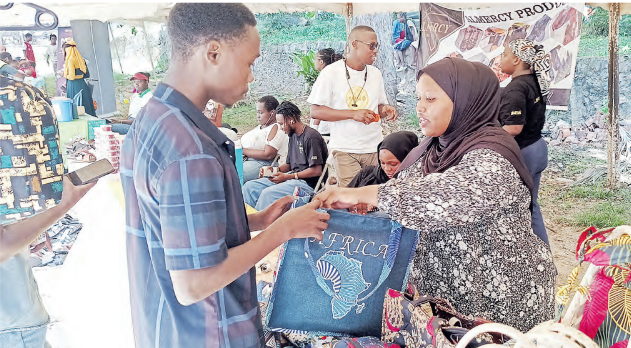
In 2021, while she was about to sit her KCSE exam in Mombasa, Samira Mohamed had the most shocking moment of her life.
Her father came to their Likoni home with an old man almost three times her age. The father was ready to marry off his then 19-year-old daughter.
“He didn’t want to spend any more money on my education. He had been told I had to pay all my school fees arrears before I was allowed to sit for the exam.
“My father believes a woman should not waste money getting an education. A woman’s place is being at home and being a good wife,” Samira told the Star on Saturday.
She ran away from home and sought refuge at a neighbour’s place. This irked her father, who banned her from ever setting foot in his house.
“I explained my situation to my head teacher who understood. I did my exam while living at my neighbour’s place,” Samira said. After completing her exam, her father came for her, forcibly taking her back home. That is when the beatings started.
“He beat me up, telling me I am a know-it-all who thinks education will help me. He said he would never spend any more money on my education,” Samira said.
The father then brought another old man in a second attempt to marry her off. “Still I refused and was thrown out of the house,” she said.
In a youth empowerment meeting in Likoni one day, Samira opened up about her situation to a woman who led the meeting.
The woman allowed her to live at the empowerment centre, which was a safe space for vulnerable girls. While at the safe space, she was introduced to Tubonge Youth Initiative, whose director Delvis Njue ensured she benefitted from their computer literacy and skills programme first.
Njue then introduced Samira to the Kenya Red Cross who were doing an entrepreneurship programme at the time.
“I am a good tailor because I learned it from my mother who was a tailor. Tubonge advised me to upscale my tailoring and use it to make money. They then gave me a sewing machine so I can use it in my new entrepreneurial venture,” Samira said.
At Red Cross, she was taken through a nine-month entrepreneurship programme at the end of which she emerged third in business idea pitching competition.
She earned Sh100,000 for her efforts. “I was glad and told my mum. That is when my father started praising me saying I had brains after all. If I had agreed to be married off, I probably be a mother of four or five children,” she said, proud of her defiance then.
Now aged 22, Samira runs her business — Sam Swahiliware Company — which recycles advertisement banners and makes Swahili handbags.
She also makes deras (Swahili dresses) and styles them using tie and dye technique. She has employed about five youths in her business, most of whom are vulnerable girls. She makes an average of Sh30,000 in profit every month.
“This is because I do not want the girls to go through what I went through or was about to go through. I am also training 15 others,” she said.
“I am against marrying off girls at early ages. Let girls get the education up to the university level as boys do. Both boys and girls have the same potential. It is wrong to curtail the potential of one and leave out the other,” she said.
Samira is one of two children in the family but her father was not paying school fees for her yet he was paying the full amount for her brother.
She called on parents to give all
their children equal opportunities
saying the only difference between
boys and girls is the gender.



![[PHOTOS]: Over 700 needy students complete German course](/_next/image?url=https%3A%2F%2Fcdn.radioafrica.digital%2Fimage%2F2025%2F03%2F8be1ab21-bf85-4113-824d-5a4f22392717.jpeg&w=3840&q=75)





